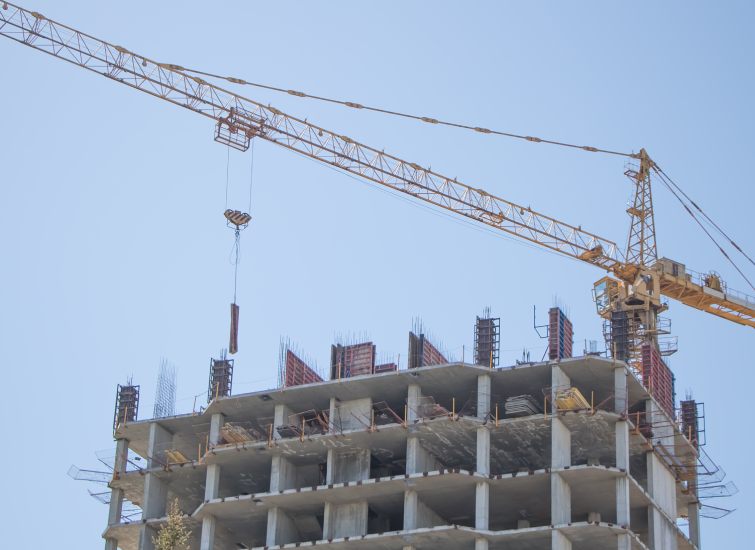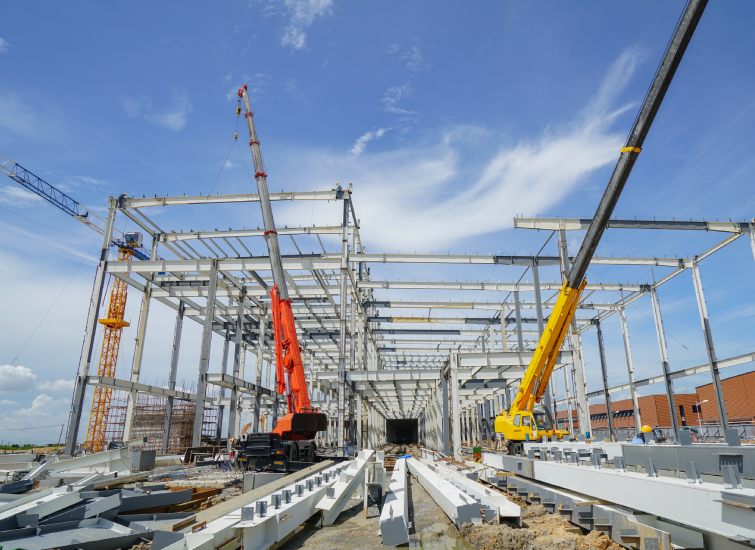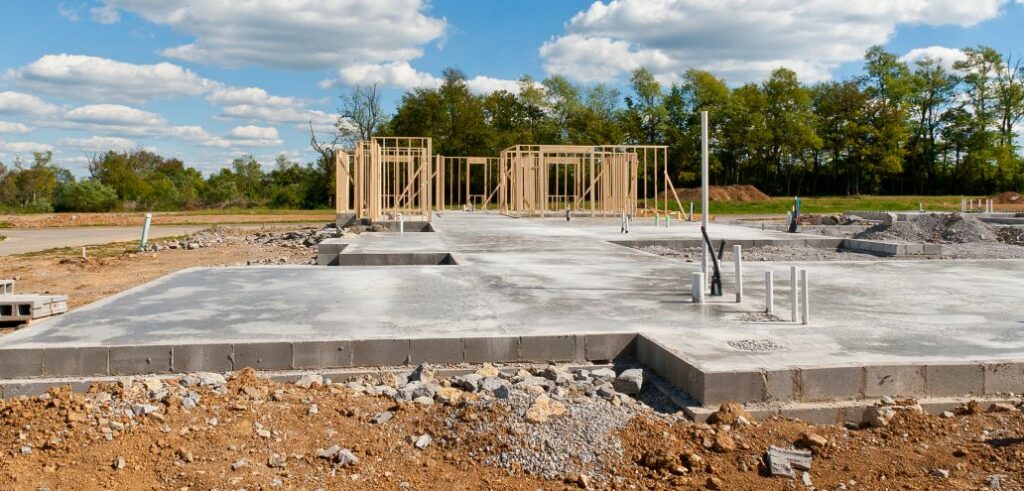Last Updated on February 23, 2024 by CREW Editorial
Investing in pre-construction properties offers a unique set of financial benefits, from locking in current prices to the potential for significant capital appreciation. However, this investment avenue is not without its complexities—legal intricacies, financial commitments, and market uncertainties abound. In such a nuanced and often unpredictable environment, the guidance of an expert becomes invaluable.
Experts help navigate the complex legal and financial landscapes while providing insights into market trends. They assist in crafting a long-term investment strategy that aligns with your financial goals, advising on whether to rent, hold, or sell the property by assignment upon completion. Additionally, they offer crucial advice on tax planning, an often overlooked aspect of pre-construction investment. Consulting with an expert is not just advisable but essential for making informed decisions in the complex realm of pre-construction property investment.
Understanding Pre-Construction Investment
Pre-construction investment involves purchasing a property before it’s fully constructed, offering a unique set of opportunities and challenges for aspiring homeowners and investors. The types of properties available for pre-construction investment are diverse, ranging from townhouses and condominiums to detached homes. Each type comes with its own set of financial and legal considerations, such as deposit structures and payment plans. These financial commitments are often structured in a staggered manner, requiring a series of deposits leading up to the property’s completion.

Romey Halabi, founder and broker of Toronto Realty Boutique, provides his expert perspective on navigating the complex legal and financial implications of pre-constructions: “For inexperienced and veteran investors alike, dealing with pre-construction can be tricky. Understanding deposit structures and evaluating the developer’s reputation are just the tip of the iceberg. Each step in the process requires meticulous planning and a deep understanding of both financial and legal landscapes.”
That’s where specialized knowledge becomes crucial. It’s not just about clarifying these complexities; it’s about providing actionable insights into the project’s viability. This involves aligning the investment with the individual’s specific goals, whether that’s long-term capital appreciation, rental income, or a quick sale through assignment. The aim is to equip investors with the tools they need to make informed decisions, thereby setting the stage for a more resilient and profitable investment.”
Expertise Matters: The Added Value in Pre-Construction Investment
While understanding the basics of pre-construction investment is crucial, the added value of expert consultation cannot be overstated. Experts go beyond explaining deposit structures and property types; they offer strategic advice tailored to your financial goals and risk tolerance. Experts can also offer insights into the developer’s past projects, construction quality, and financial stability, factors that are often overlooked but can significantly impact your investment’s success. They can guide you in selecting the right property within a development based on factors like future urban plans, proximity to amenities, and potential for rental income or resale value.
Additionally, experts can help you navigate the often complicated world of real estate financing. From understanding mortgage options to exploring alternative financing solutions, they can provide advice that aligns with your long-term investment strategy.
Lastly, experts often have insider access to new project launches and can negotiate terms that may not be available to the general public. This insider advantage can result in substantial savings or more favorable terms, giving you a competitive edge.
Crafting a Long-Term Strategy with Expert Help

Developing a long-term strategy is one of the most critical aspects of pre-construction investment. Without a well-thought-out plan, even the most promising investment can turn sour. An expert can help you develop a multi-year investment plan that considers various scenarios and market conditions. This involves identifying your financial goals, risk tolerance, and investment timeline, then tailoring a strategy that aligns with these parameters.
Romey Halabi provides his expert perspective: “In the realm of pre-construction investment, a long-term strategy serves as your compass. It’s not just about setting financial goals or risk tolerance; it’s about creating a dynamic plan that can adapt to market uncertainties. Whether the focus is on rental income or capital appreciation, the strategy should be nuanced enough to pivot as conditions change, making it resilient in the face of market fluctuations.
Experts should guide you on structuring your investment for maximum tax efficiency, especially concerning rental income and capital gains. They can also offer insights into emerging neighborhoods and developments with high growth potential. By incorporating flexibility into your investment plan, such as having exit strategies in place, you’re setting the stage for a more resilient and profitable investment.”
Navigating Tax Waters: HST and More
While crafting a long-term strategy is essential, understanding the tax implications of your investment is equally crucial.
Taxes can significantly impact your bottom line, and an expert can guide you through the maze of tax considerations that come with pre-construction investment. One of the most important tax-related aspects in Ontario is the Harmonized Sales Tax (HST), which applies to new construction homes and can be a substantial additional cost.
Experts can help you understand how HST applies to your specific investment and whether you’re eligible for any rebates, such as the New Housing Rebate. They can also guide you on how to structure your investment to maximize tax efficiency. For example, if you plan to rent out the property, certain tax benefits and deductions may apply, which can offset your overall tax liability.
Additionally, experts can provide advice on capital gains tax should you decide to sell the property in the future. Understanding the tax implications of selling by assignment versus holding the property long-term can influence your investment strategy and financial planning.
Making the Choice: Rent, Hold, or Sell by Assignment
After securing a pre-construction property, you’re faced with three primary options, each with its own set of advantages and challenges:

- Renting Out: Ideal for those looking to generate a steady income stream. Renting involves assessing the rental market, calculating potential yields, and property management.
- Holding for Long-Term Appreciation: Suitable for investors focused on long-term capital growth. This choice involves keeping the property and betting on its value increasing over time.
- Selling by Assignment: An option for those who need to liquidate their investment quickly or if market conditions have changed. This involves transferring your purchase contract to another buyer before the property is completed.
Romey Halabi sums it up best, “The choices you make after securing a pre-construction property are often reflective of your broader investment philosophy. Renting, holding, or selling by assignment each has its own complexities and opportunities. For instance, renting out a property involves a deep understanding of the rental market and the responsibilities of being a landlord. Holding for appreciation requires a long-term view of market trends. Selling by assignment, while it offers quicker liquidity, comes with its own set of legal and financial intricacies. Each path requires a nuanced approach, and that’s where expertise comes into play.”
Conclusion
From understanding the basics and crafting a long-term strategy to navigating complex tax considerations, each step of the journey in pre-construction requires careful planning and informed decision-making. The role of an expert in this process is invaluable, offering strategic advice, insider knowledge, and a roadmap to navigate the complexities of the real estate landscape. Whether you’re considering renting, holding, or selling by assignment, an expert can guide you through each option, ensuring that your choices align with your financial goals and market conditions.
For personalized, expert advice on pre-construction property investment, reach out to Romey Halabi and his team at Toronto Realty Boutique.









